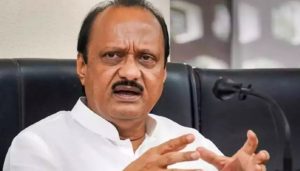Pune: Like COVID, Pune Suffered Smallpox Once Upon A Time

Pune, January 4, 2021: Before Coronavirus Disease (COVID-19), another such epidemic had made a buzz among Puneities 200 years ago. During the reign of Bajirao II, Pune was hit by smallpox also called ‘devi’ disease, and finding a vaccine for it was equally a challenge. Many generations have suffered the terror of the epidemic centuries ago. While, Pune’s Serum Institute of India’s Covishield vaccine has been approved by the drugs regulator– bringing achievement to humankind, here is a short story of how Pune had once dealt with an equally deadly disease 200 years ago.
Smallpox had claimed millions of lives worldwide. The older generation still carries the prominent mark of the smallpox vaccine on their arms. The first vaccination against the disease in Pune took place in the North Peshwa during the reign of Bajirao II from July 1802 to 1806. Bajirao had made special arrangements for vaccination at Vetal Peth (now known has the Guruvar Peth). An Engolish doctor had administered the doses of vaccines to Pune citizens. Bajirao’s eldest wife Varanasibai was also vaccinated. According to the historical records it is written that the ruler had managed to eradicate smallpox.
After observing the prevalence of the epidemic, Mumbai Governor Duncan had started a lookout for vaccine availability across the globe. It was found out that vaccines were available in Russia. It was then brought to Rome, Baghdad and from there to Mumbai on June 14, 1802. It was inoculated in five children in Mumbai. But the trial had failed. One of the five children was again later vaccinated. After the success, the vaccine was sent to Pune.
During the year 1806-07, there was an outbreak of smallpox disease around Pune. The vaccine brought from Mumbai did not last. There were no doctors who could say how to preserve a vaccine. After experimenting in Pune for two to three years, on the direction of resident Colonel Claus, an English doctor Kots had started giving the vaccines to children near the Mula-Mutha river from September 1806. After Peshwas learned the news, on December 22, 1806, under the supervision of Claus, doctor Kots vaccinated Varanasibai. The vaccination experiment was successful. Bajirao rewarded Kots with Rs 2,000. Bajirao had also asked the Colonel to retain doctor Kots in Pune and it was accepted by the British.





